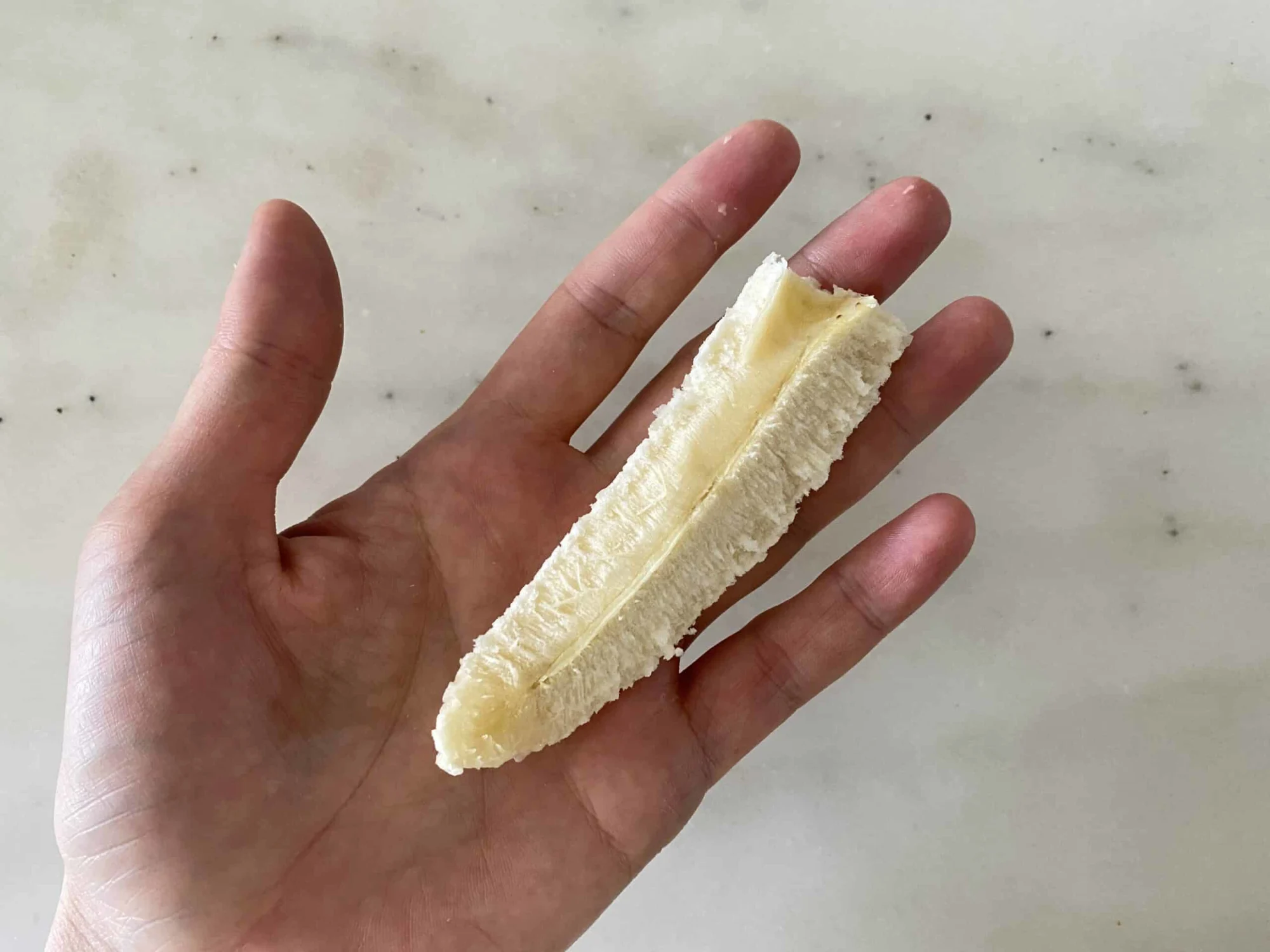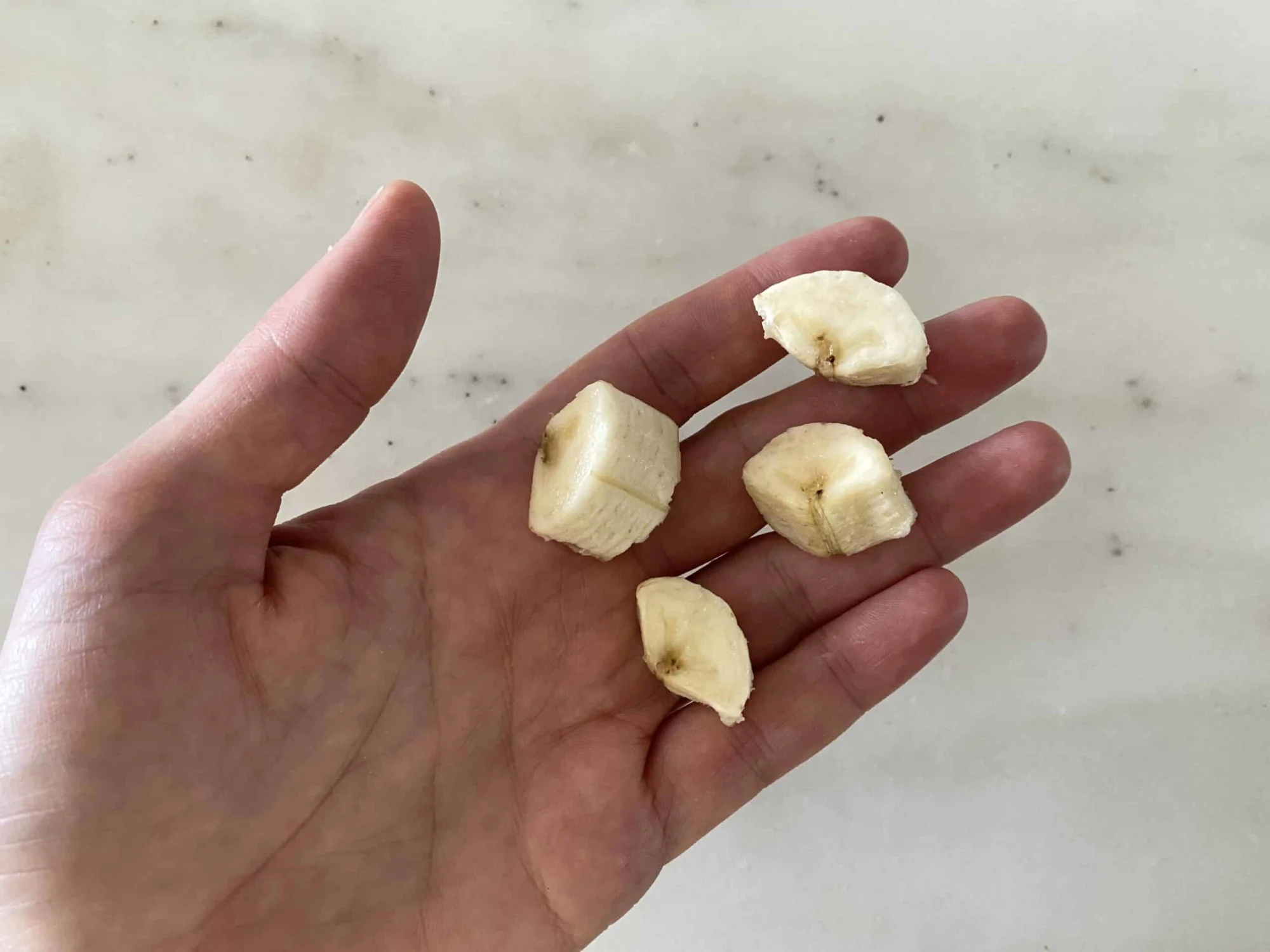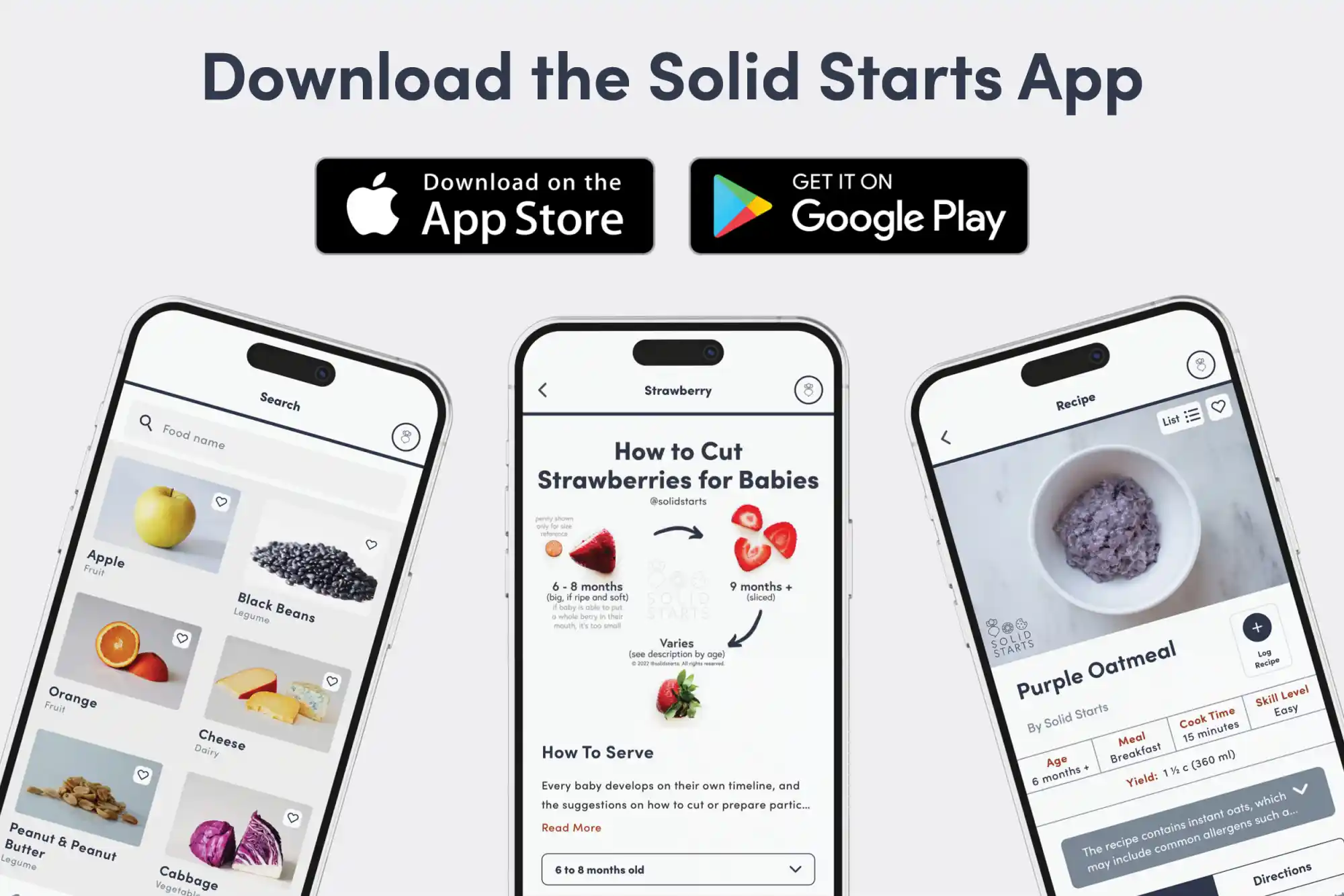Access our First Foods® Database in the Solid Starts App.
Learn moreBanana
Fruit
Age Suggestion
6 months
Iron-Rich
No
Common Allergen
No

When can babies have banana?
Bananas may be introduced as soon as a baby is ready to start solids, which is generally around 6 months of age.
Bananas originated in the tropics of Asia, where the plant still grows wild. There, one can enjoy a bevy of banana and plantain varieties in different sizes, shapes, and colors, from red to orange to pink to purple, with a taste that ranges from starchy to sweet. Yet despite its incredible biodiversity (more than 1,000 varieties exist), just one—the Cavendish banana—dominates the world market. This cultivar has a sturdy peel that protects the fruit while it travels long distances, a competitive advantage over tender types that are eaten quickly after harvest.
How do you serve bananas to babies?
Every baby develops on their own timeline, and the suggestions on how to cut or prepare particular foods are generalizations for a broad audience.
6 months old +:
Offer one half of a whole, peeled banana on its own, or serve spears from a banana that has been split lengthwise into thirds (to achieve this, just poke the tip of the peeled banana with your finger and push through until it splits into three spears). Alternatively, mash banana and pre-load a spoon for baby to try to pick up or grab from you. Remember, babies often gag on banana because it is soft and sticky. If you notice banana is sticking to the roof of baby’s mouth and causing an intense gag, consider lengthwise spears of banana instead of a whole peeled banana. Unlike other foods that when served big give the inside of the mouth a lot of sensory feedback, the soft, squishy nature of banana doesn’t tend to provide the same type of input.
9 months old +:
Serve spears from a banana that has been split lengthwise into thirds (to achieve this, just poke the tip of the peeled banana with your finger and push through until it splits into three spears). If baby is stuffing and shoveling food into the mouth, try serving smaller, bite-sized pieces broken off from a banana already split into spears, which will make the pieces easier to pick up and less slippery. Slices of banana are great for pincer grasp practice, and can also be added to yogurt, oatmeal, and porridge.
12 months old +:
Offer bite-sized pieces—or if you feel comfortable, serve spears or even a whole banana. The exact size is up to you, though certain sizes may yield more consumption depending on the child’s eating skills.
18 months old +:
This is a great time to move back up in size by offering the whole banana. Try teaching how to peel a banana—a fun activity for toddlers.


Splitting a banana into spears
One way of breaking banana into bite-sized pieces for babies 9 months +
Videos
Are bananas a choking hazard for babies?
No. Banana presents a low risk when safely prepared for a child’s age and developmental ability, though, in theory, an individual could choke on any food. To reduce the risk, prepare and serve banana in an age-appropriate way. As always, make sure you create a safe eating environment and stay within an arm’s reach of baby during meals.
Learn the signs of choking and more about choking first aid in our free guides, Infant Rescue and Toddler Rescue.
Are bananas a common allergen?
No. Although bananas are not considered a common allergen, reactions to banana have been reported. Individuals with ragweed allergy, latex allergy, or oral allergy syndrome (also called pollen food allergy syndrome) may be sensitive to bananas. Oral allergy syndrome typically causes mild, temporary itching, tingling, or burning in the mouth, which usually resolves on its own. Cooking banana before serving can minimize oral allergy symptoms. Individuals with oral allergy syndrome are also unlikely to react to banana-flavored foods.
Banana can be a trigger food for babies and toddlers who have FPIES (Food Protein-Induced Enterocolitis Syndrome), a type of delayed allergic reaction that can result in vomiting, diarrhea, low blood pressure, and dehydration a few hours after ingesting the food. To learn more about FPIES, see our Allergies page.
As you would when introducing any new food, start by offering a small quantity during the first couple of servings. If there is no adverse reaction, gradually increase the amount served over future meals.
Are bananas healthy for babies?
Yes. Bananas are packed with carbohydrates to energize the body and essential nutrients that babies need to thrive, like folate, vitamin B6, vitamin C, and potassium. Together these nutrients support the nervous system, skin health, iron absorption, and blood pressure. A bonus: bananas contain more antioxidants than many berries, herbs, and vegetables.
Nutrients vary by ripeness. For example, all bananas contain a good amount of fiber to build a healthy digestive system, but less-ripe bananas contain more prebiotic fiber than ripe bananas, which contain more soluble fiber.
Do bananas cause constipation? Can bananas ease diarrhea?
Despite popular perception, the evidence for bananas causing constipation is weak. In fact, there’s research that suggests that bananas can help promote regular bowel movements. The belief that bananas cause constipation may come down to differences in ripeness.
Unripe green bananas are higher in resistant starches and soluble fibers, which help feed gut bacteria (great for regularity), while also containing tannins. Tannins are a type of polyphenol that makes unripe bananas suck the moisture out of your mouth. When tannins are consumed in excess, they can be associated with constipation; despite this, green bananas may still help support regular bowel movements.
If you’re worried bananas are causing constipation, explore offering ripe bananas. As bananas become riper, the starch and tannin decrease, and the natural sugar content increases, which may be more helpful for an already constipated child.
That said, constipation is complicated. There’s usually more to it than just bananas—like other foods in a baby’s diet, a baby’s medical history, and the natural shift in the gut microbiome with the introduction of solid food. If you have any concerns about constipation, be sure to talk to your pediatric health care provider.
★Tip: Store green bananas in a brown paper bag to speed up the ripening process. Once ripe, peel and pop them in an air-tight container in the freezer—where they’ll keep for a couple of months.
Our Team
Written by
Expert Tips Delivered to Your Inbox
Sign up for weekly tips, recipes and more!
Copyright © 2026 • Solid Starts Inc









